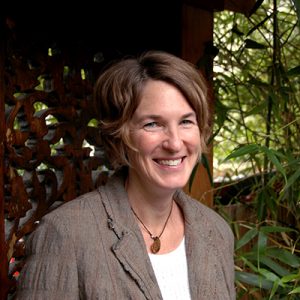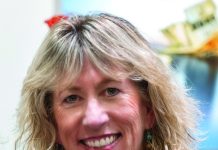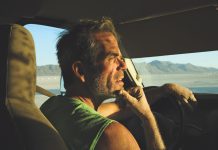
By Juliana Essen
What does a non-party stakeholder / non-governmental observer (NGO) do at the United Nations Climate Change Conference? I filled this role last month in Glasgow at COP26, and I’m still not sure. My nonprofit, Global Wellbeing Institute, was admitted along with about 1,700 other NGO observer delegations to provide transparency and public participation in the U.N.-led negotiations. That’s about all I knew going into it.
You may wonder: why go if you don’t know? Well, that’s precisely why. I’ve spent my career as a public anthropologist pursuing answers to the question, “How can we all live well on this small planet?” Surely, I would gain some insights as a COP observer.
To be frank, since this was my first COP, all I did was observe. I observed tightly-controlled “main stage” panels of state ministers touting achievements; multi-lateral negotiations over specific article wording; side-event debates among scientists, farmers, indigenous people, youth, business leaders, and development agents; creative public protests in the spaces outside and in-between, press conferences that put their own spin on things, and delegates discussing the day over drinks in the bar. I observed it all.
It was quite a “mouth-to-a-fire-hydrant” experience, but I’ve managed to process a few initial takeaways:
Takeaway No. 1: Climate change is real, and curbing it calls for urgent action
In an airport convenience shop on the way to Glasgow, a chatty cashier told me almost confidentially, “You know, some people don’t believe climate change is real.”
Well, at COP26, all the delegates representing the 197 signatories to the Paris Agreement (mostly national governments but some non-state parties like the Holy See) at least agree on this: climate change is really happening; it’s propelled by human activity (namely greenhouse gas emissions, which have dramatically increased since the Industrial Revolution), and it must be curbed to no more than 1.5 degrees Celsius above pre-industrial temperatures, so we can prevent the most life-threatening consequences. We have until 2030 to figure this out—specifically, how to reduce greenhouse gases that are clogging up our atmosphere. This is clearly a crisis that calls for urgent action.
Takeaway No. 2: National governments may end up doing too little, too late
The negotiations among party delegations I observed were tedious and slow. This is to be expected: tiny island states like Fiji, sprawling lower-income nations like India, affluent countries like Canada, and diverse coalitions like the European Union have divergent experiences, needs, goals, and ability to pay. However, while the democratic process is something to celebrate, the pace doesn’t seem to match the urgency of the problem.
The other more distressing issue is that the fossil fuel lobby exerts powerful influence. While Brazil had the largest national delegation with 479 members, representatives from oil and gas companies presented a more sizeable force at over 500. They pushed the “net zero” agenda, which sounds good, but actually means companies wouldn’t have to cut their emissions if they could buy offsets, like credits sold on a carbon-trade market or trees planted in the Amazon.
Even John Kerry, the U.S. special climate change envoy, said that the agreements produced at COP26 fell short of the 1.5-degree-target by 0.3 degrees. Though the difference seems small, it amounts to too little, too late.
Takeaway No. 3: Individuals will solve the climate crisis, but not in the way you think.
If the government can’t solve this climate crisis, then it’s up to us… but not in the way you might think. While I’m inspired daily by my neighbors’ efforts to live more sustainably and reduce their carbon footprint, I’m not talking about individual lifestyle changes. The climate crisis demands solutions at a larger scale. So we must convince those with power to make system change to take swift and decisive action.
For me, one of the most memorable moments at COP26 was when Luisa Neubauer, the student who leads Fridays for Future in Germany, told her story about becoming engaged in climate action. I’ll leave you with her final words: “Climate change is not an accident. It’s a political decision. And we can change political decisions.”
Julianna is a Laguna Beach resident and founder of Global Wellbeing Institute.




